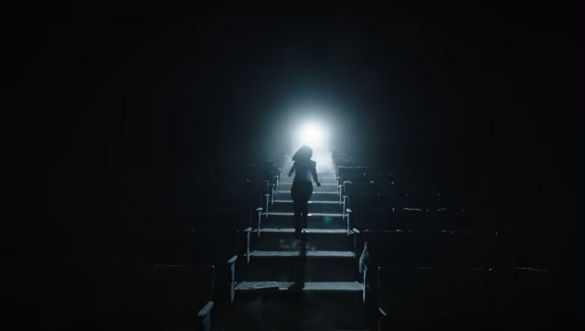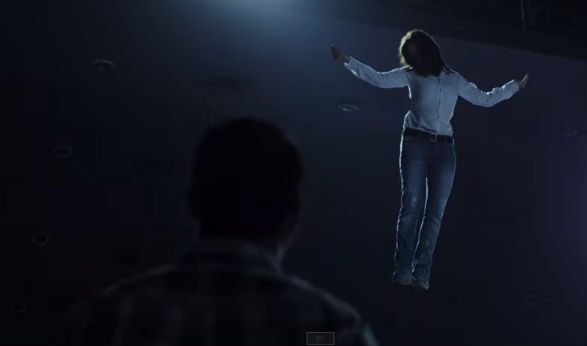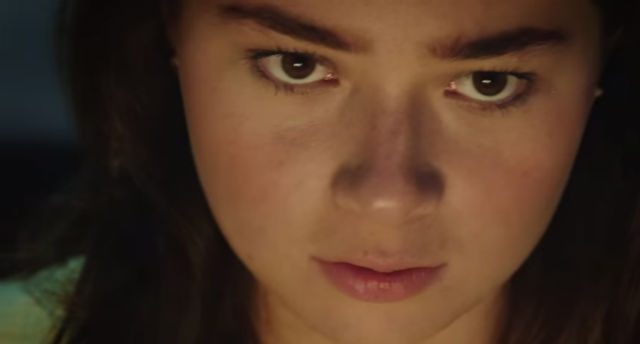SUMMARY
This is AI generated summarization, which may have errors. For context, always refer to the full article.


Aguiluz, with the help of cinematographer Boy Yniguez, creates rousing images and interesting sequences that are truly haunting. A lot of the visuals are sadly mired by needless digital effects, but Aguiluz nevertheless maintains an aesthetic that is aptly ominous.
The amount of creative talent however is not enough to resolve a lot of the film’s many woes. In fact, its too reverent story however is the least of Tragic Theater’s problems.
Here lies the problem
The film’s production is obviously littered with hiccups, resulting in storylines that are curiously unresolved and characters that just suddenly disappear. Erwin (Gabe Mercado), one of the more senior spirit questers of Father Nilo, is conveniently stricken off the plot right after a tension-filled séance, without any logical reaction or concern from his pals.
Noise is the most consistent element in the film. As can be gleaned from Emerzon Texon’s loud score and the predictable sound effects that accompany a lot of the film’s scares, the film relies too heavily in jarring the senses to unsettle its audience.
Moreover, Viva, the film’s producer, seems to be more interested in filling up Tragic Theater with its talents, who all have varying competencies when it comes to acting but are all oblivious to the fact that they are in a film that is set in the late ’90s. A lot of the supposedly eerie sequences are defeated by overindulgent make-up, fake long eyelashes, and grating teenybopper gestures.
Ham and cheese
The more established actors do not fare any better.

Eigenmann, who already has the difficult job of making her uninteresting character hold an entire film together, seems disconnected. Sure, the film’s writing has left all of its characters unmotivated and acting seemingly on sheer illogical impulse, but a little bit of sensitivity and care from Eigenmann could have salvaged her character from being the most tedious part of the film.
Christopher de Leon, who plays the archbishop who ultimately heads the exorcism of the theater when Father Nilo’s powers can’t cut it, is predictably hammy. He overperforms his role, essentially turning it into a caricature more than anything else.
Estrada, on the other hand, has a lot of trouble in translating his character from being a blank hero to one with intriguing linkages. The film hints of a past between Annie and Father Nilo, but Eigenmann and Estrada, with no help from the film’s writers, are uninterested in adding depth or layers to the characters.
A meal served raw
It seems Tragic Theater has been served half-cooked, leaving so much to be desired.
There are a lot of novel ideas here coming from Aguiluz, who makes most of the source material’s adherence to Roman Catholic lore to conjure moving images that would at the very least astound if they cannot scare.
Unfortunately, those ideas can never gel with the rest of the film’s inadequacies to create a truly fascinating whole. – Rappler.com
 Francis Joseph Cruz litigates for a living and writes about cinema for fun. The first Filipino movie he saw in the theaters was Carlo J. Caparas’ ‘Tirad Pass.’ Since then, he’s been on a mission to find better memories with Philippine cinema. Profile photo by Fatcat Studios
Francis Joseph Cruz litigates for a living and writes about cinema for fun. The first Filipino movie he saw in the theaters was Carlo J. Caparas’ ‘Tirad Pass.’ Since then, he’s been on a mission to find better memories with Philippine cinema. Profile photo by Fatcat Studios
Add a comment
How does this make you feel?
There are no comments yet. Add your comment to start the conversation.